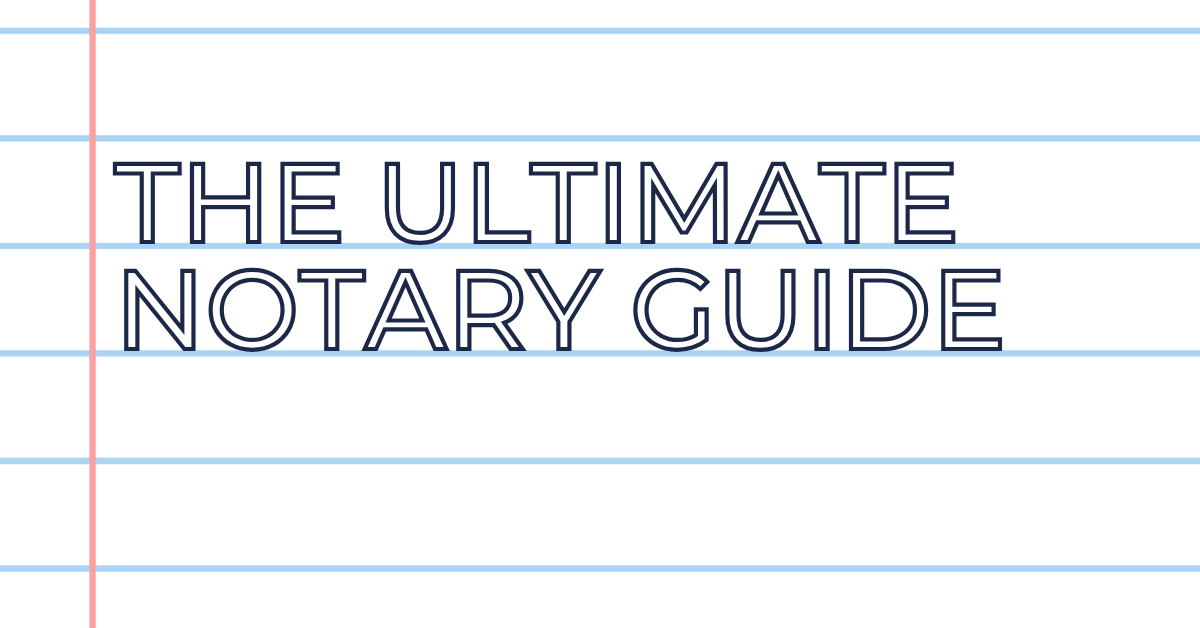Notary Public Underwriters Blog
The Ultimate Notary Guide
- Details
- Published: January 7, 2015

Revised 9/17/25
Yes, mistakes happen. We’re only human. But you can make sure you follow these steps to help reduce your liability when performing notarizations. These are the fundamentals to completing a notarial act. The basic elements are often the most overlooked. A few common mistakes include:
- Not requiring personal presence
- Failure to require proper ID
- Mistakes on the notarial certificate
- Failure to properly record notarial acts in the record book
Most of the time, these issues arise simply because a notary overlooks a step during the notarization. To help you avoid these errors, we have compiled The Ultimate Notary Guide.
Require Personal Appearance
There are no exceptions to this rule. This is the cornerstone of notarization. Only with the signer present can you assess the signer’s willingness to the transaction, properly identify them, and ensure they are aware of the notarial act about to take place.
Identify the Signer
There are a few acceptable ways to identify a signer.
Satisfactory Evidence: Each state has its own laws and administrative rules regarding satisfactory evidence of identification. This usually means the signer must produce a current passport, driver’s license, or other government- issued ID that has a photo and signature. Always check your state’s notary laws and administrative rules for full ID requirements.
Personal Knowledge: You may identify someone whom you personally know. This means you have known the individual for a significant period of time and under circumstances that leave you with no doubt about their true identity. For example: a close acquaintance you’ve interacted with regularly for a considerable length of time.
Identification by Credible Witness: This may occur in one of two ways: a.) One credible witness who is personally known to both the notary and the signer. b.) Two credible witnesses who personally know the signer but are not known to the notary, provided they can present valid identification.
Examine the Document
Before completing the notarial act, carefully inspect the document. You do not need to understand the contents of the document, you are simply ensuring it is complete and contains no blank spaces. Review the notarial certificate wording to ensure it meets your state’s notary requirements. Be sure to check the date of the document; it cannot be dated for the future..
Enter the Transaction in Your Record Book
We highly recommend every notary keep a record book of notarial acts, even if it is not required by your state. The record book is a valuable tool to help protect you, the notary. You should enter the transaction in your notary record book before the notarial act is complete, ensuring you have collected all the required information and have the signer sign your book.
Perform the Notarial Act
Perform the verbal ceremony. If the notarial act is an acknowledgment, “Do you acknowledge signing this document willingly, for the purposes stated in it?” And if the notarial act is an oath/affirmation, “Do you solemnly swear that the contents of this document are true, so help you God?” Or (as applicable), “Do you affirm the contents of this document are true?”
Please note: If the notarial act is an oath/affirmation, the signer must sign the document in your presence. If the notarial act is an acknowledgment, the signer may be signed either in your presence or beforehand.
Complete the Notarial Certificate:
The notarial certificate reflects the notarial act being performed. The wording is typically printed on the document beneath the signer's signature, or in some cases, it may be on a separate sheet of paper, commonly referred to as a "loose certificate." (See our blog entitled “How to Complete a Notarial Certificate”) Without a properly completed notarial certificate, the notarization is incomplete and could be called into question later.
